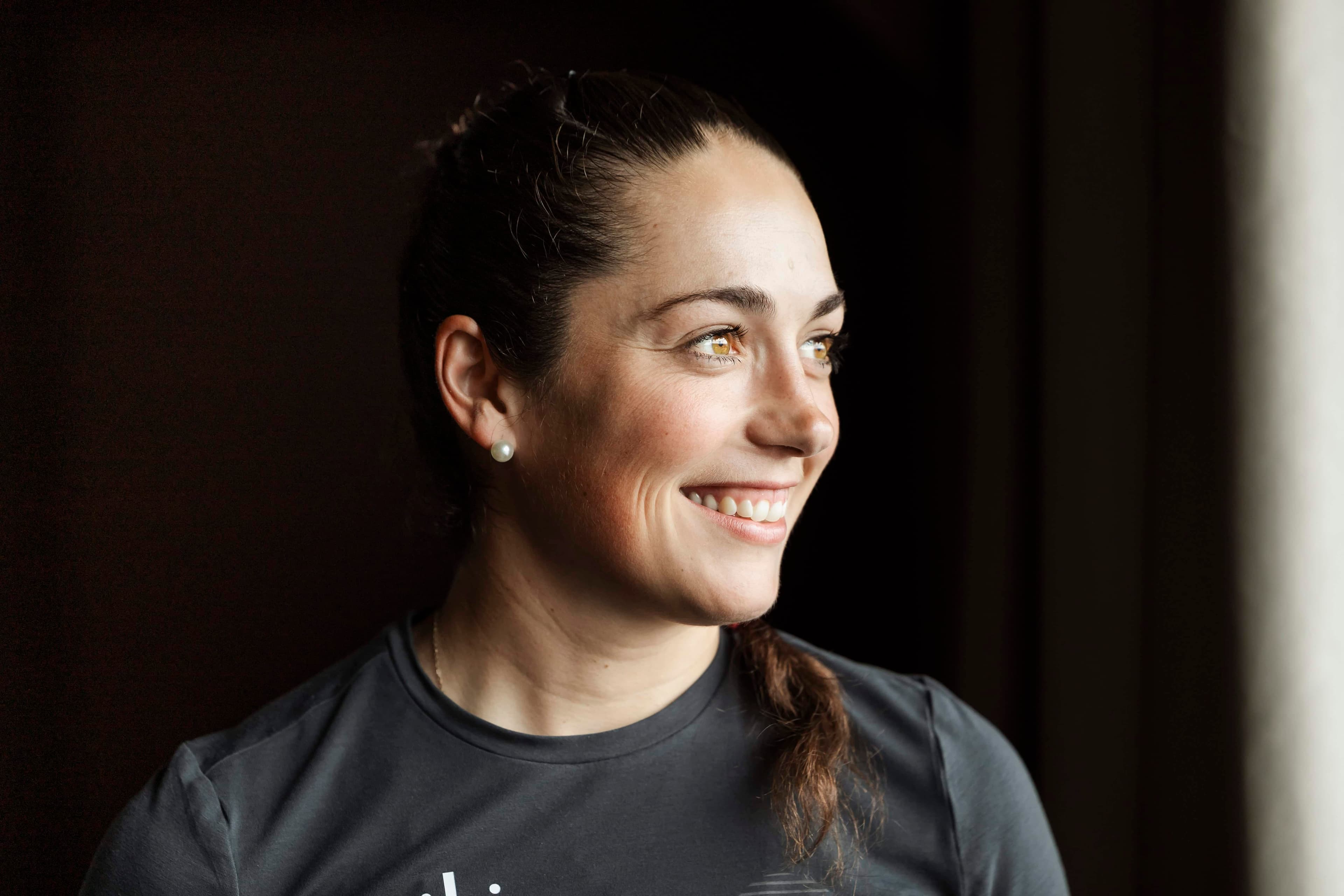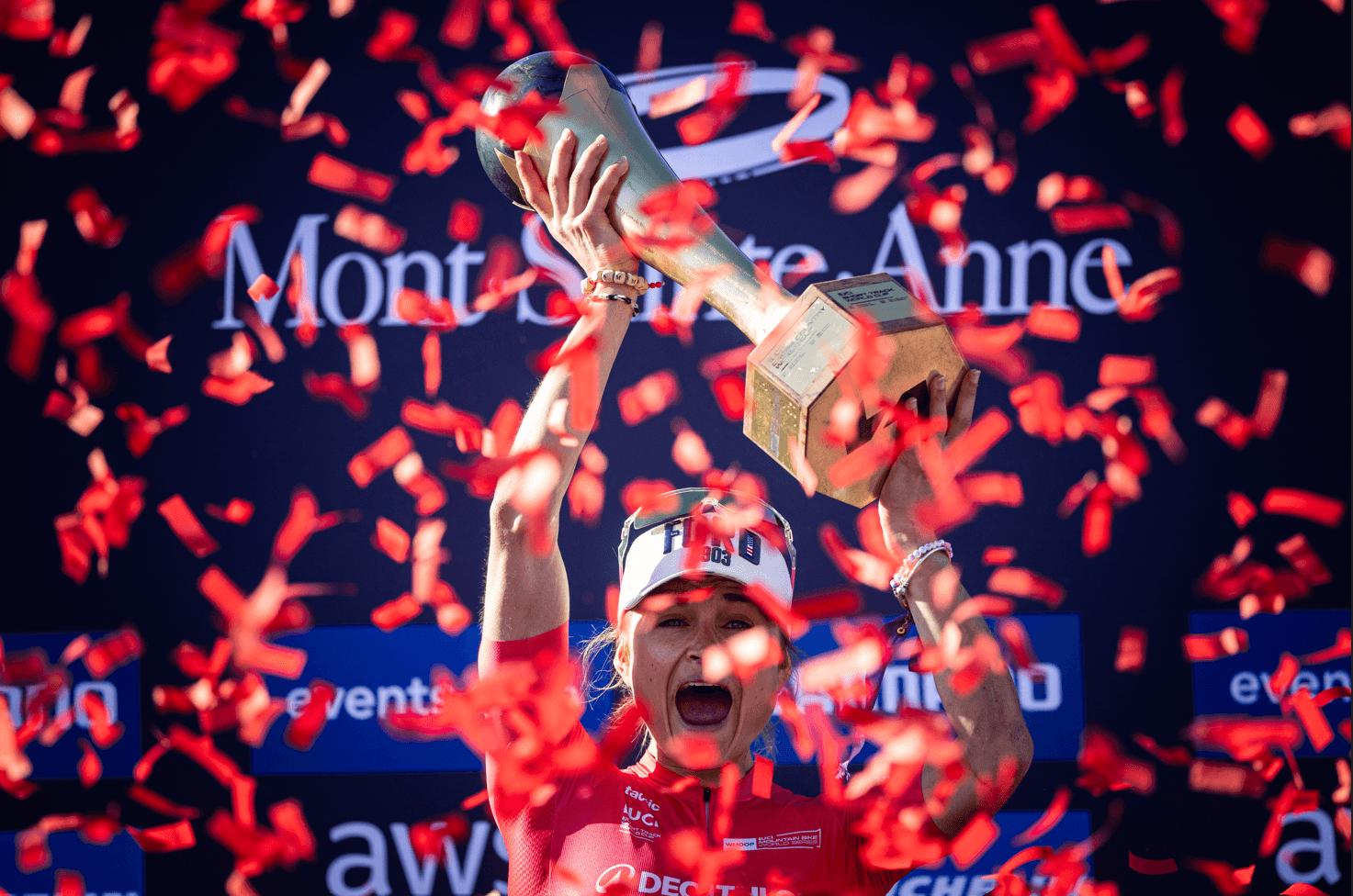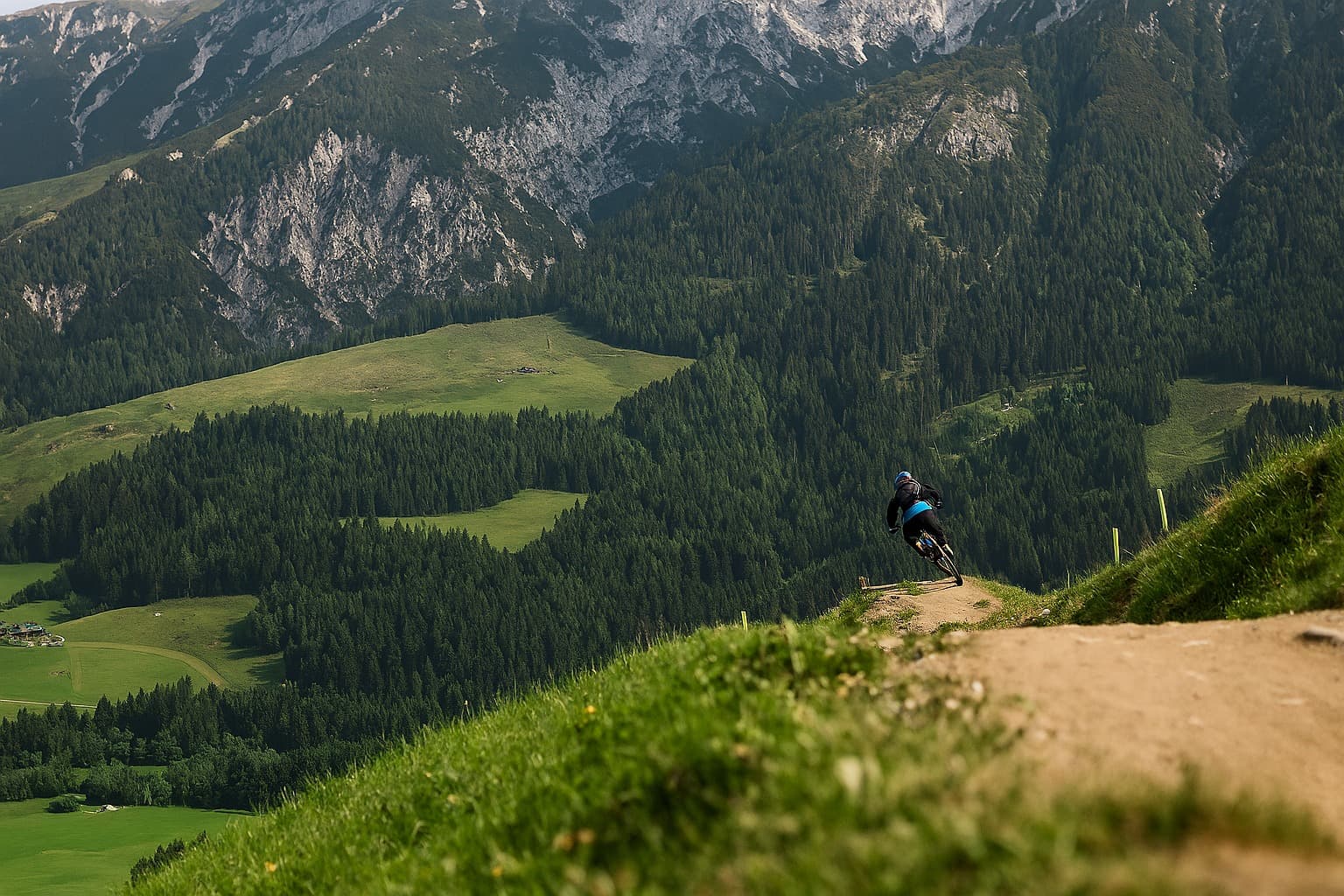The 30-year-old Frenchwoman was one of cross-country mountain biking’s rising stars before her world came tumbling down. After battling with injuries, an eating disorder and juggling training with a part-time job just to make ends meet, she has found her calling in the Cross-country Marathon (XCM) format. Ahead of her home race at the UCI Mountain Bike Marathon World Cup in Megève, Haute-Savoie, the French XCM champion shares how her career highs and lows have shaped her outlook and her ambitious goal for 2025.
Margot Moschetti is happiest when on her bike in the big outdoors. In fact, it’s how she got into cross-country mountain biking.
Growing up on the outskirts of Nice in the south of France, she was an avid swimmer and practised judo, but she longed to explore her Côte d’Azur surroundings rather than be confined to the pool or judo hall. Her father, a keen mountain biker, suggested she join him for a ride. Her path was set.
“It's a freedom to be outside and have no planned training period,” she says. “You can go whenever during the day and enjoy being free and outside.
While the 30-year-old has been on the professional cross-country circuit for more than a decade and riding and racing mountain bikes since the age of 13, clipping into her pedals to go and train still puts a smile on her face.
But it hasn’t always been this way.
A RISING STAR
From the outside, Moschetti’s early career follows the trajectory of most of the sport’s rising stars. After a string of impressive results at Junior and Under-23 level – including numerous UCI Cross-country Olympic (XCO) World Cup wins and silver at the Under-23 2014 UCI XCO World Championship in Hafjell - Lillehammer (Norway), she signed with an established team – 1996 Olympic champion Bart Brentjen’s Betch.NL Superior-Brentjens – for the 2015 season.
“They were enjoyable years because there was quite a lot of success and I enjoyed having those victories and that recognition,” she says. “It gave me the opportunity to join a big, organised team and learn a lot from that experience with Bart [Brentjen’s] – how to be more professional, what it means to be a high-level athlete, how to get ready for a specific event.”
Her final season as an Under-23 saw her record more UCI World Cup podiums and a silver at the European Championships, but when she progressed to the Women’s Elite class in 2016, she went from being in contention for victories to struggling to break the top 30.
It wasn’t a case of the Elite class being a step too far though. Moschetti had been suffering from an eating disorder for more than two years, and her body was at breaking point.
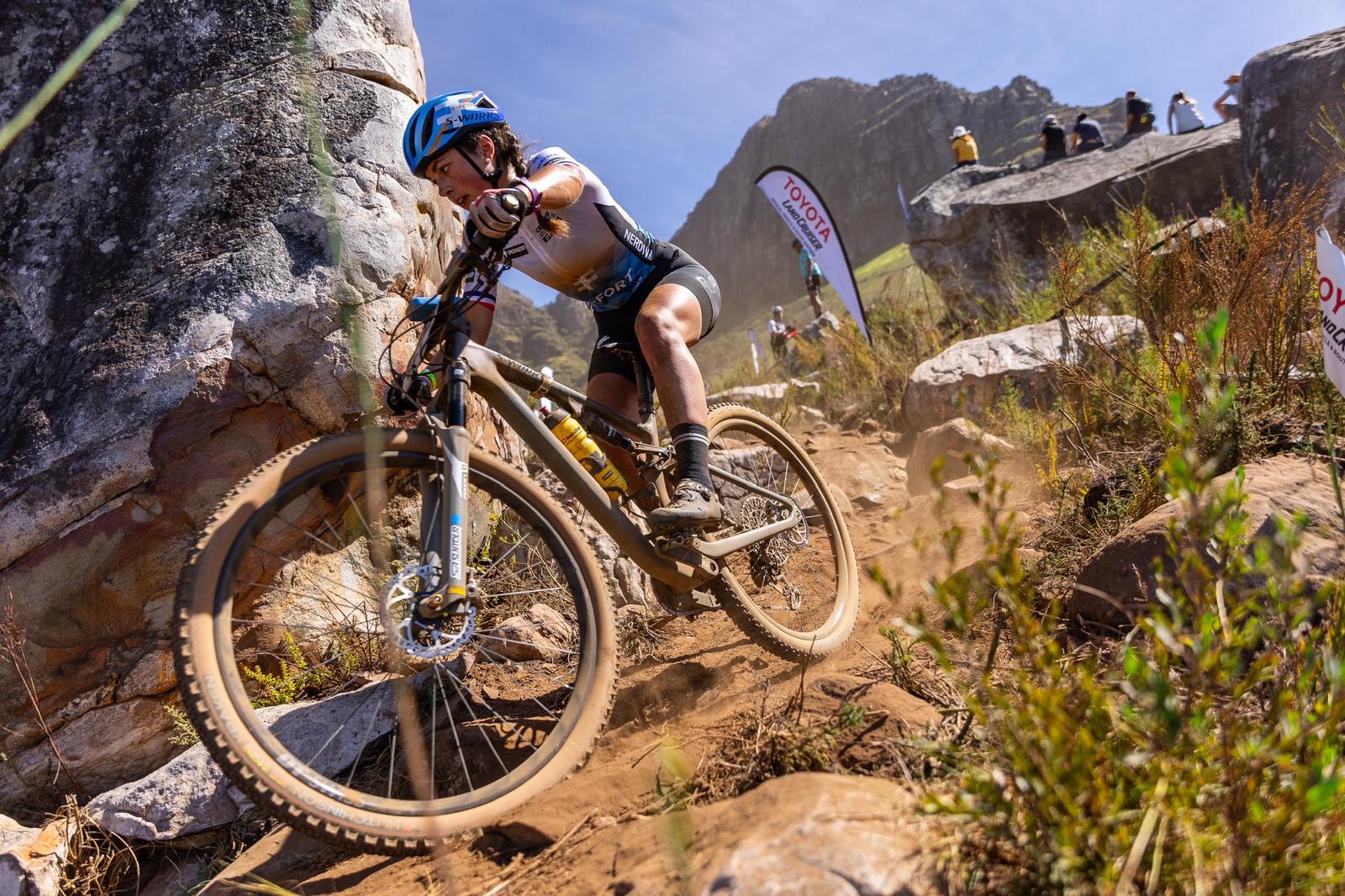
A VICIOUS CYCLE
It all started in 2013 when she was sidelined with a serious knee injury that would take six months just to recover.
“I didn’t get the best advice and was told that, because I wasn’t able to do sport, I might put on weight and then not be able to perform at the same level after that,” she says. “It clicked in my head that I couldn’t put on weight, and I had to be careful with my eating. I almost stopped eating to try and manage it.”
When she did resume training, she continued being incredibly strict on what and how much she was eating. Despite the imbalance, she achieved some of her best results – reinforcing the negative approach to nutrition.
“I lost a lot of weight, trained a lot, and had huge results. But eventually it took a toll on my body and that was the start of the end.”
Moschetti developed mononucleosis – a viral infection also known as Glandular fever where symptoms include extreme tiredness, high temperatures and swollen neck glands – and couldn’t shake it for a year.
On returning to racing, the results still weren’t there, and by 2019, her contract with Brentjen’s outfit wasn’t renewed, meaning she had to join a smaller team, where a pay cut forced her to get a part-time job to make ends meet.
“When you have all those successes in the XCO, and you have been in the front all the time, it's difficult to step back. Everything goes into a vicious cycle – you must leave the big team you were in and join a smaller team with less means. I had to have a part-time job, which meant less time to train and less time to recover. It was difficult to live and cope with it.
REBUILDING FROM THE BOTTOM
Moschetti credits her family with helping her overcome her eating disorder, providing the support and care she needed to focus on herself and understand that she had to take care of herself. Her part-time job – where she helped disabled children get physically active – gave her a reality check too. “I thought ‘Maybe I have to calm down about watching what I’m eating and just think about how I feel’.”
She’s quick to point out that she’s still not ‘cured' – “I can still feel the devil on my shoulder and have to make sure that I’m not falling into that vicious cycle again” – but she’s confident that she has the right team and support in place to ensure she’s making the best choices about eating.
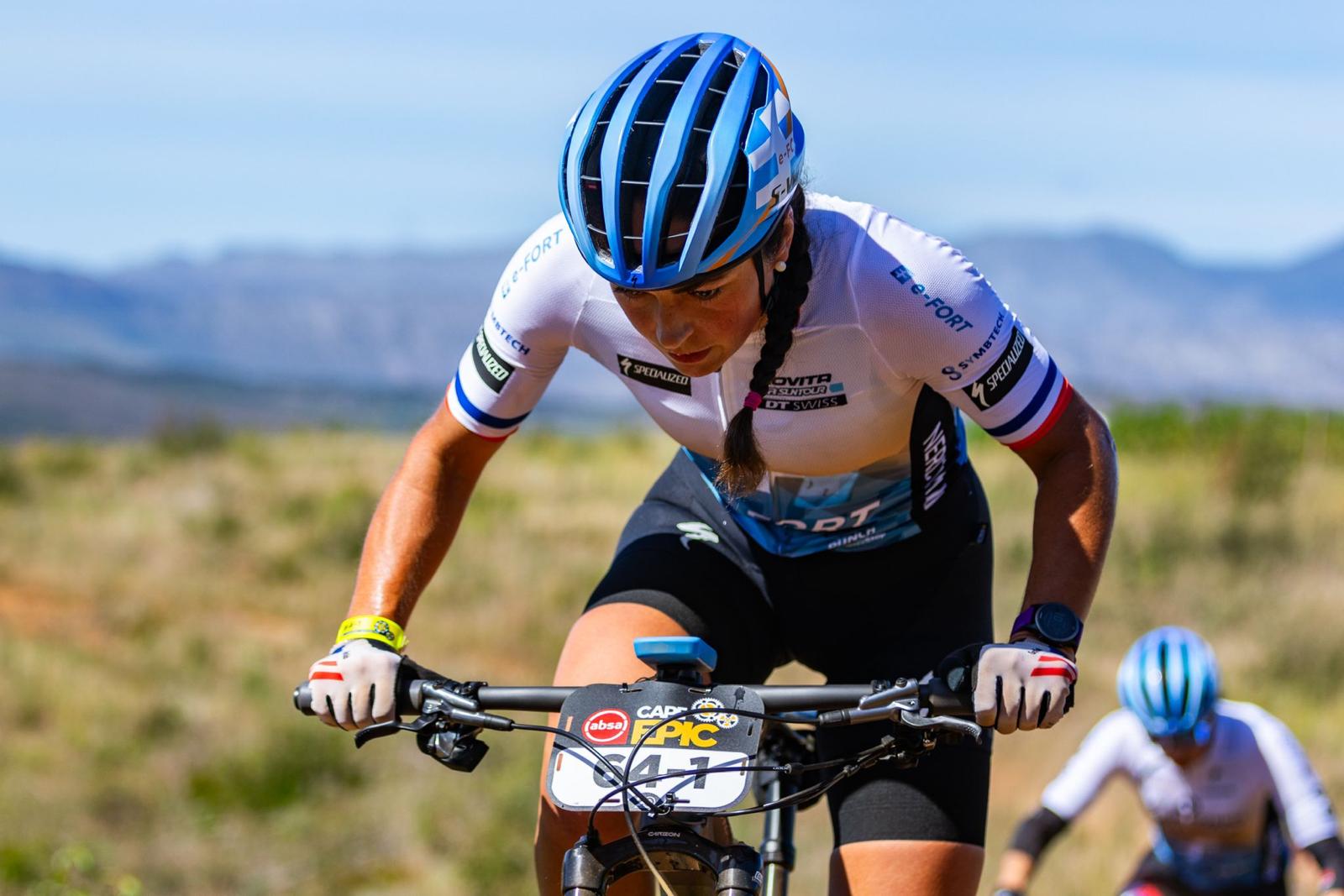
MASTERING THE MARATHON
It’s clearly working for her too, and Moschetti is getting back to her best. She decided to focus solely on the Marathon format from the 2023 season – “it was a natural choice because of the long distances and the opportunity to be in a more open landscape rather than lapping on a short track as you do in XCO and XCC” – and narrowly missed out on a top 10 place at 2023’s four-round UCI XCM World Cup season.
This season, she has signed with E-Fort, and has been able to train as a full-time professional once more. Her only objective this year has been to train and get better; Moschetti’s main focus the 2025 UCI XCM World Championships. But her win at last weekend’s French XCM national championship show that she’s on the right path.
“I’m very happy to wear the French jersey again. It gives me a lot of motivation for the future and shows the level of training and recovery that’s necessary to perform at the highest level. I’m putting everything together to get back to my best and where I belong.”
She adds that she’s happy to race at home at this weekend’s UCI XCM World Cup in Megève, Haute-Savoie with the jersey on and that she “will give the best of herself” to secure a result for the local fans.
But ultimately, if her highs and lows have taught her anything, it’s that she doesn’t want to take the opportunity for granted.
“The difficulties have freed my mind of some the constraints that I had earlier in my career and made me more conscious of how lucky I am to be back as a full-time pro – getting paid to do what I enjoy.”
